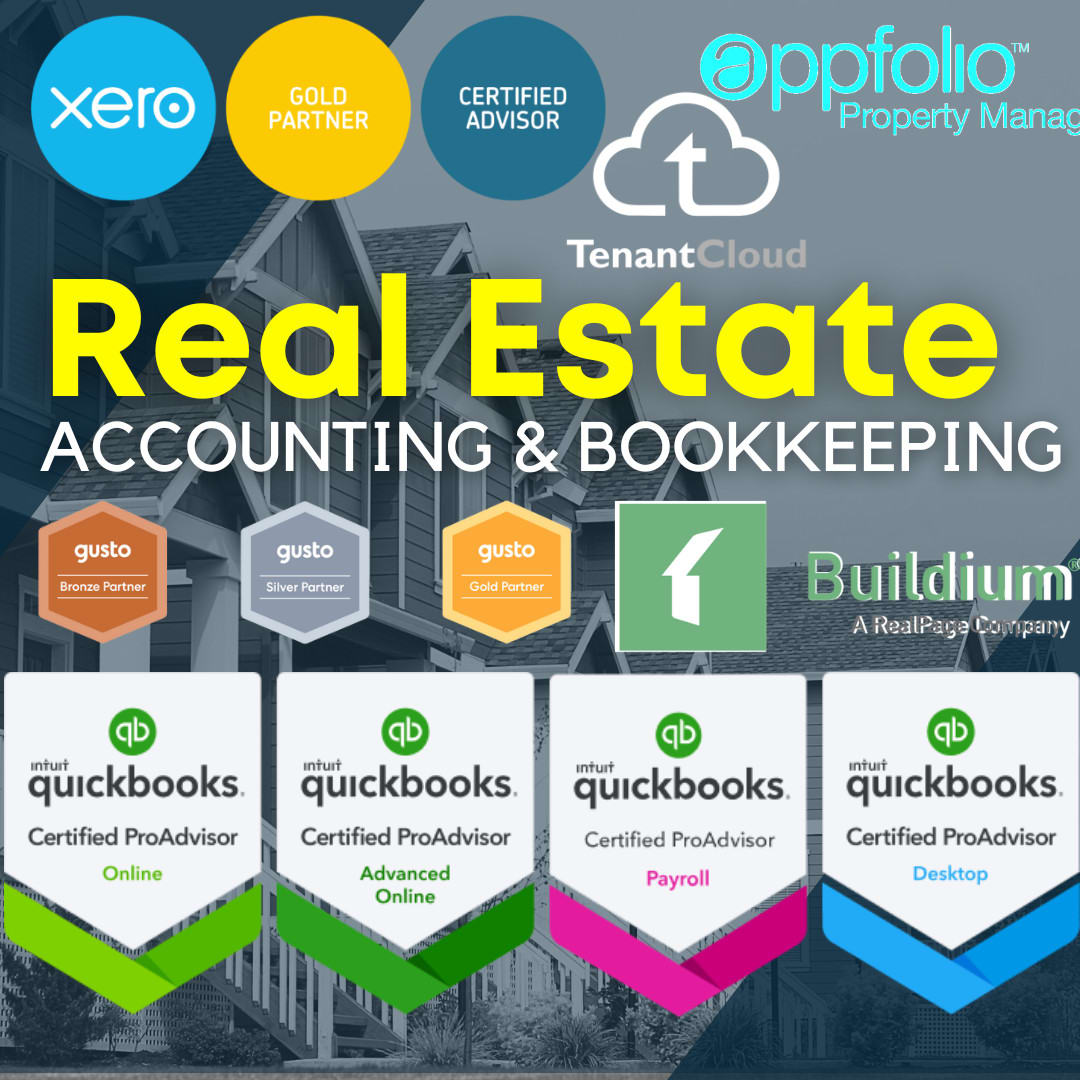The Smart Way to Manage Construction Accounting for Builders and Contractors
Wiki Article
The Secret Advantages of Implementing Building Accountancy Practices in Building And Construction & Realty Firms
The implementation of building accounting practices within construction and real estate firms provides many advantages that can considerably improve general economic management and task results. By establishing strenuous budgeting and cost-tracking systems, firms can achieve better accuracy in financial preparation and money flow monitoring.Boosted Budget Plan Control
In the world of building bookkeeping, reliable budget plan control is critical for project success. Enhanced spending plan control includes strenuous tracking and management of monetary resources throughout the job lifecycle. Accurate budgeting makes sure that costs are approximated realistically, allowing firms to allot funds effectively and reduce the risk of overruns.To accomplish enhanced spending plan control, building and construction companies should employ detailed price monitoring techniques, utilizing innovative software application services that facilitate real-time information evaluation. This includes breaking down task expenses right into labor, products, and overhanging, enabling accurate forecasting and modifications as needed. Normal budget plan reviews and difference evaluation are vital in determining discrepancies in between predicted and actual expenditures, which can notify timely decision-making.
Additionally, clear interaction amongst task stakeholders is important for keeping budgetary discipline. Establishing a culture of responsibility ensures that all employee are conscious of monetary restraints and objectives. By fostering collaboration across departments, companies can improve their capacity to react to financial difficulties proactively.

Improved Capital Monitoring

Efficient money circulation monitoring is critical for construction firms, as it directly affects their capability to run smoothly and meet job obligations. By employing durable building and construction audit techniques, companies can get a more clear photo of their monetary setting, enabling better forecasting and source allotment.
Among the key benefits of better cash money flow monitoring is the capability to prepare for durations of monetary strain. Construction tasks often entail considerable upfront prices and changing income based upon job milestones. With reliable tracking of income and expenditures, companies can identify possible money shortages and apply approaches to alleviate them, such as securing lines of credit rating or readjusting repayment timetables with subcontractors.
Furthermore, timely invoicing and attentive follow-up on receivables can improve capital. By simplifying these processes, building companies can guarantee that funds are readily available when needed, sustaining continuous operations and decreasing the threat of delays because of pay restrictions. Accurate money circulation projections allow companies to make informed decisions relating to financial investments in new jobs, tools, or personnel, cultivating sustainable development and stability within the organization. Inevitably, improved cash money circulation administration is important for maintaining functional performance and guaranteeing lasting success in the competitive building sector.
Enhanced Project Success
Making best use of task success is an essential objective for construction companies making every effort to boost their financial performance. Implementing effective construction bookkeeping practices is critical in attaining this purpose. By accurately tracking job prices, companies can determine locations of overspending and execute corrective actions promptly. This positive approach enables for better budget management, making certain that sources are assigned successfully throughout the job lifecycle.Furthermore, comprehensive monetary reporting and analysis supply understandings into profit margins for different jobs. By reviewing these margins, companies can make educated choices on future quotes, guaranteeing they seek projects that line up with their productivity goals. Furthermore, construction bookkeeping practices assist in much better interaction amongst project stakeholders, cultivating cooperation that can cause cost-saving innovations and enhanced task execution.
In addition, establishing a durable accountancy framework enables firms to precisely assess their performance versus sector benchmarks. This not just aids in recognizing toughness but likewise highlights weaknesses that need attending to, allowing constant renovation. Eventually, boosted task profitability not just enhances a firm's economic standing however additionally boosts its affordable advantage in the building and construction and realty market, leading the means for sustainable growth and success.
Streamlined Financial Processes
Structured economic procedures are necessary for building and construction firms aiming to enhance operational efficiency and precision in their accountancy methods. By implementing standardized treatments and making use of specialized software, firms can substantially decrease the time and effort spent on economic administration jobs. Automation of regular jobs, such as invoicing, payroll, and expenditure tracking, reduces human error and makes sure that economic data is processed promptly.Additionally, streamlined processes promote much better capital management, an essential facet for building firms where job timelines and budget plans can be uncertain. With real-time monetary coverage, firms can monitor their monetary wellness, permitting speedy modifications to alleviate any kind of capital concerns. This positive method helps preserve distributor relationships and maintains jobs on routine.
Integrating building audit methods allows firms to combine various financial features, from budgeting to task costing, right into cohesive workflows. This assimilation not only saves time but also advertises transparency and accountability among staff member. Inevitably, structured economic procedures add to an extra dexterous company, all set to reply to market changes and project needs while making certain that economic honesty remains intact.

Notified Decision-Making Insights
Enlightened decision-making is important for building companies browsing complex project landscapes and varying market problems. By applying durable building and construction accounting practices, firms can take advantage of precise monetary information to assist in critical selections. This data-driven approach enables managers to analyze project practicality, allot resources effectively, and forecast cash circulation fluctuations with higher accuracy.Building and construction accountancy gives insights into price administration, allowing firms to identify locations of overspending and carry out rehabilitative procedures immediately. Comprehensive budget monitoring and variance evaluation can reveal discrepancies between forecasted and actual prices, notifying future project quotes and methods. Construction CPA Accounting Firm. In addition, prompt financial reporting enhances the ability to react to market modifications, ensuring that companies remain affordable and nimble
Moreover, accurate financial insights foster far better interaction with stakeholders, consisting of customers and financiers. Transparent financial reporting develops trust fund and confidence, as stakeholders can see the company's economic wellness and job efficiency at a glance. Eventually, notified decision-making, backed by audio audit techniques, gears up building companies to navigate challenges, take advantage of on opportunities, and drive sustainable development in an increasingly competitive industry.
Verdict
Finally, the application of building and construction bookkeeping methods in building and construction and property companies dramatically improves financial administration. By helping with boosted spending plan control, enhancing cash flow administration, and boosting job profitability, these practices contribute to streamlined monetary processes and educated decision-making. The fostering of such techniques not just fosters accountability among stakeholders yet likewise outfits companies with the dexterity necessary to navigate fluctuating market conditions, ultimately leading to better overall success in project execution.The execution of construction bookkeeping practices within construction and real Construction & Real Estate estate companies presents numerous benefits that can considerably enhance total economic administration and job outcomes. Building and construction jobs commonly include significant upfront prices and changing earnings based on project turning points. Additionally, construction audit techniques help with better interaction amongst project stakeholders, fostering collaboration that can lead to cost-saving technologies and improved task execution.
Incorporating construction accountancy methods allows companies to consolidate various monetary functions, from budgeting to task costing, right into cohesive workflows. Real Estate Tax Services. Detailed spending plan tracking and difference evaluation can disclose disparities in between predicted and actual prices, informing future task bids and methods
Report this wiki page